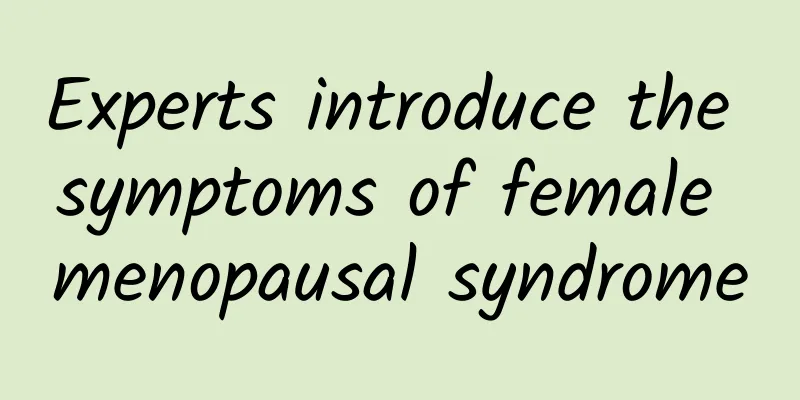What causes miscarriage? There are 4 main reasons

|
Miscarriage in pregnant women may be caused by genetic factors, generally considered to be abnormal chromosome number or structure. However, it may also be caused by harmful chemicals and other types of adverse environmental stimulation. If the embryo has endocrine dysfunction, or the pregnant woman suffers from reproductive system diseases and systemic diseases, it can also lead to miscarriage. Some women may experience miscarriage after pregnancy. Although they take measures such as progesterone injections to preserve the pregnancy, it is often useless. Some women even have symptoms of habitual miscarriage. At this time, it is necessary to find the specific cause and treat it in time. So what causes miscarriage? |
<<: How to take care of your body after miscarriage? Pay attention to these 5 points
>>: What are the signs of miscarriage? There are 4 major signs
Recommend
Introduce some issues about cervical precancerous lesions
What exactly are cervical precancerous lesions? C...
How long will it take to go back to work after an abortion? How should I take care of myself after the abortion?
Artificial abortion is a common method for women ...
What is cervical hypertrophy? What are the symptoms?
You may not hear about cervical hypertrophy very ...
What are the symptoms of incomplete abortion? There are 3 major symptoms
Many women who are not ready to have children wil...
Attention should be paid to the treatment of vaginal bleeding in patients after abortion
Patients often experience vaginal bleeding after ...
What are the common symptoms of ovarian cysts in women?
What are the common symptoms of ovarian cysts in ...
Ladies, please pay attention to submucous uterine fibroids!
Submucosal uterine fibroids are a common disease,...
Personal hygiene is one of the main factors affecting vulvar leukoplakia
The cause of vulvar leukoplakia is relatively unf...
The occurrence of ectopic pregnancy may be related to functional abnormalities
The occurrence of ectopic pregnancy may be relate...
What are the dangers of premature ovarian failure?
What are the dangers of premature ovarian failure...
Acute adnexitis should be treated promptly
Acute adnexitis must be treated in a timely manne...
What are the dangers of not treating cervical precancerous lesions?
I believe many people are aware of the dangers of...
Beware! Women with frequent back pain should beware of pelvic inflammatory disease
Pelvic inflammatory disease is a common gynecolog...
What is the cause of uterine cysts?
Uterine cysts may sound scary, but they are actua...
What are the clinical symptoms of uterine fibroids?
What are the clinical symptoms of uterine fibroid...









